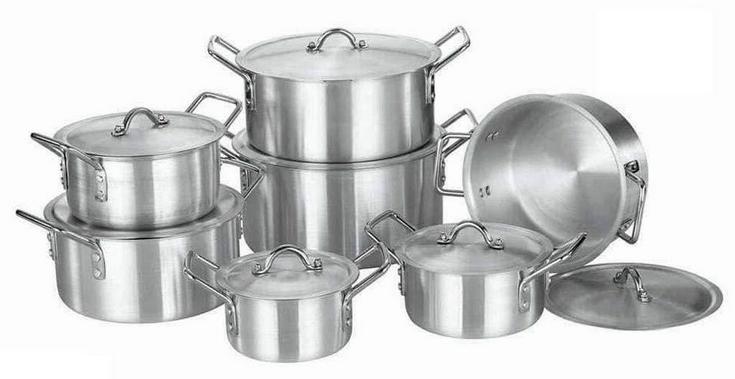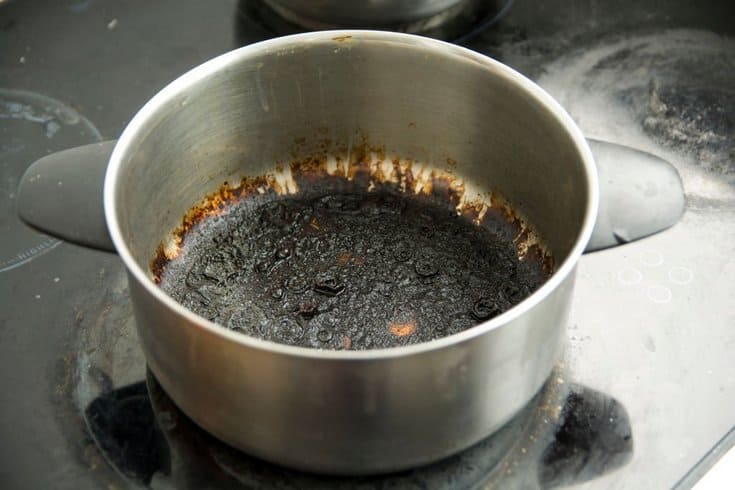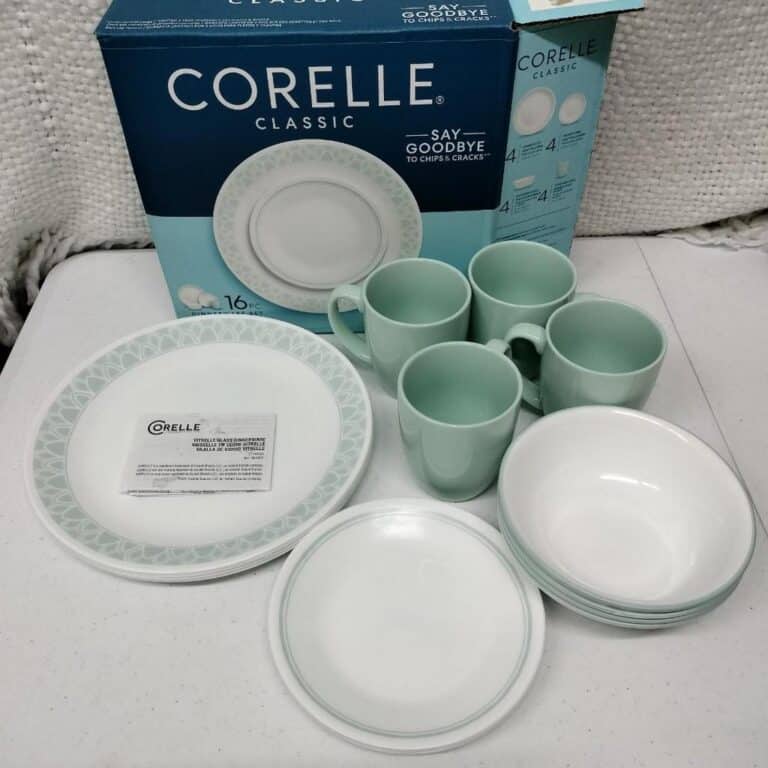How Often Should You Run Your Dishwasher: Tips for Optimal Usage
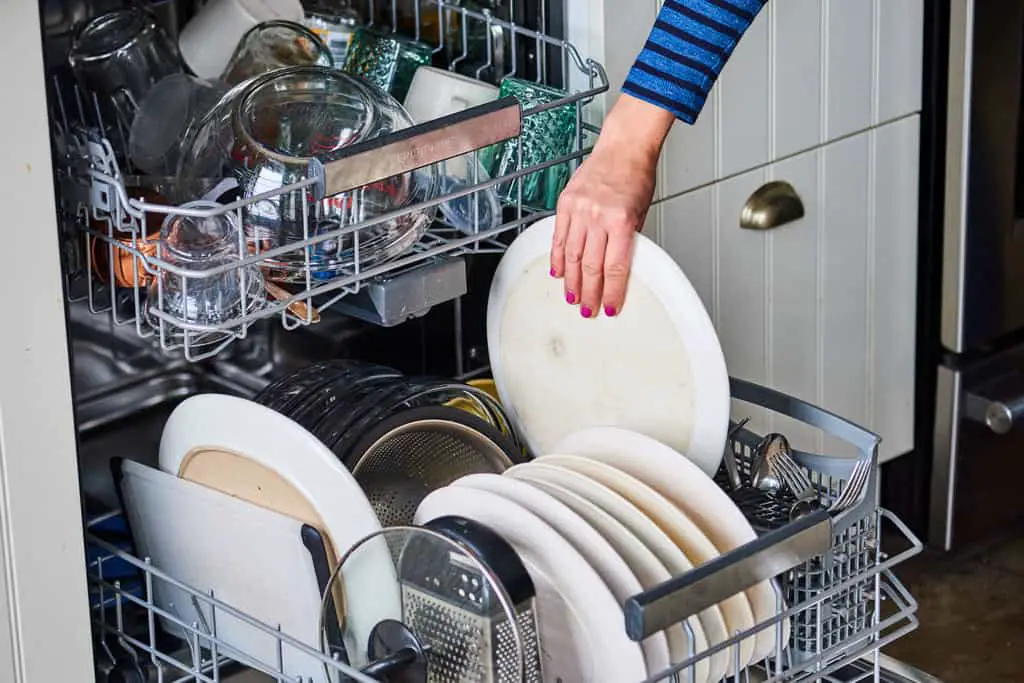
If you’re like most people, you probably use your dishwasher on a daily basis. But how often should you really be running your dishwasher to get the most out of it? Do you want to find out what the best solution is for optimal usage?
In this blog post, you’ll find out how frequently your dishwasher should be used and get some tips for optimal dishwasher usage, so you can save money on your utility bills and get the most out of your appliance.
Whether you’re looking to save money or simply want to ensure that your dishes are properly cleaned, this article can provide some guidance.
How Often Should You Run Your Dishwasher
The answer depends on a number of factors, including the size of your family, the type of dishes and silverware you own, and how often you cook with them.
One of the main factors that affect dishwasher usage frequency is the size and capacity of your dishwasher. If you have a larger dishwasher, you may be able to wait longer between runs because it can hold more dishes. On the other hand, if you have a smaller dishwasher, you may need to run it more often to keep up with dirty dishes.
For larger households that use the dishwasher heavily throughout the week, running it once or twice per day may make more sense.
However, if you live alone or with just one other person and don’t have much cooking to do in a given day, then running it 2-3 times per week could be enough.
The Importance of Energy and Water Efficiency in the Home
Energy and water efficiency are important for your home. They can save you a ton of money on your utility bills. Plus, being energy and water efficient can improve the overall sustainability of your home, making it more environmentally friendly.
Think about it this way: the production of energy often has negative impacts on the environment, like air pollution and greenhouse gas emissions. By using energy more efficiently, we can use fewer fossil fuels and produce less pollution. This can make a huge difference in the fight against climate change and help to protect our planet for future generations.
Water efficiency is just as important. Clean water is a limited resource, so if we use it more wisely, we can help keep it around and take less of a toll on our water supply. This is especially important in areas where water shortages are a concern.
But the benefits of energy and water efficiency don’t stop there. By using less energy and water, you can also save a lot of money on your monthly bills. These savings can add up to a significant amount over time and make it easier for you to afford other household expenses.
Is It Cheaper to Run the Dishwasher or Wash by Hand?

According to Energy Star, a dishwasher can actually save you money in the long run. If you wash your dishes by hand, it can cost you about $1,300 more over a 12-year period than if you use an Energy Star-certified dishwasher. That’s because combined energy and water costs for the average dishwasher amount to just $463 over the appliance’s lifetime.
Of course, this doesn’t mean that every dishwasher is more cost-effective than washing by hand. Older, less efficient models can actually be more expensive to run than washing by hand.
However, if you have an Energy Star-certified dishwasher, you can be sure that you’re getting a model that is designed to be as efficient as possible, which can help you save money on your utility bills.
Also, you should think about how much time and effort it takes to wash dishes by hand. While it may seem like a more environmentally friendly option, the reality is that it can take a lot of time and energy to wash and dry a full load of dishes by hand.
This means that you might be using more energy and resources in the form of hot water and dishwashing liquid than you would with a dishwasher. Overall, the decision of whether to wash your dishes by hand or in a dishwasher comes down to a combination of cost, efficiency, and personal preference
What Is the Cheapest Way to Run a Dishwasher?
There are a few ways that you can save money on your dishwasher’s energy and water costs. One of the most effective ways to save money is to make sure that you’re using your dishwasher as efficiently as possible.
Here are a few tips to help you get the most out of your dishwasher:
- Only run the dishwasher when it’s full. This will help you save on energy and water costs, as you’ll be using the dishwasher to its full capacity.
- Use the energy-saving cycle: Many dishwashers come with an energy-saving cycle that uses less hot water and energy to clean your dishes. This can be a great option if you’re looking to save money on your utility bills.
- Don’t pre-rinse dishes. Pre-rinsing your dishes before loading them into the dishwasher can actually make the dishwasher less effective. Instead, scrape off any large food debris and let the dishwasher do the rest.
- Use a water-efficient model. If you’re in the market for a new dishwasher, consider choosing a model that is certified by Energy Star. These models are designed to be as water and energy efficient as possible, which can help you save money on your utility bills.
- Run the dishwasher at night. Electricity rates are often lower at night, so running your dishwasher during off-peak hours can help you save money on your energy costs.
- Use a dishwasher detergent that is formulated for low-energy dishwashers. These detergents are designed to be effective at lower water temperatures, which can help you save money on your energy costs.
- Fix any leaks or issues with your dishwasher. Leaks or other issues with your dishwasher can increase your water and energy costs. By fixing these issues, you can help ensure that your dishwasher is running as efficiently as possible.
What Is the Most Efficient Dishwasher Cycle?
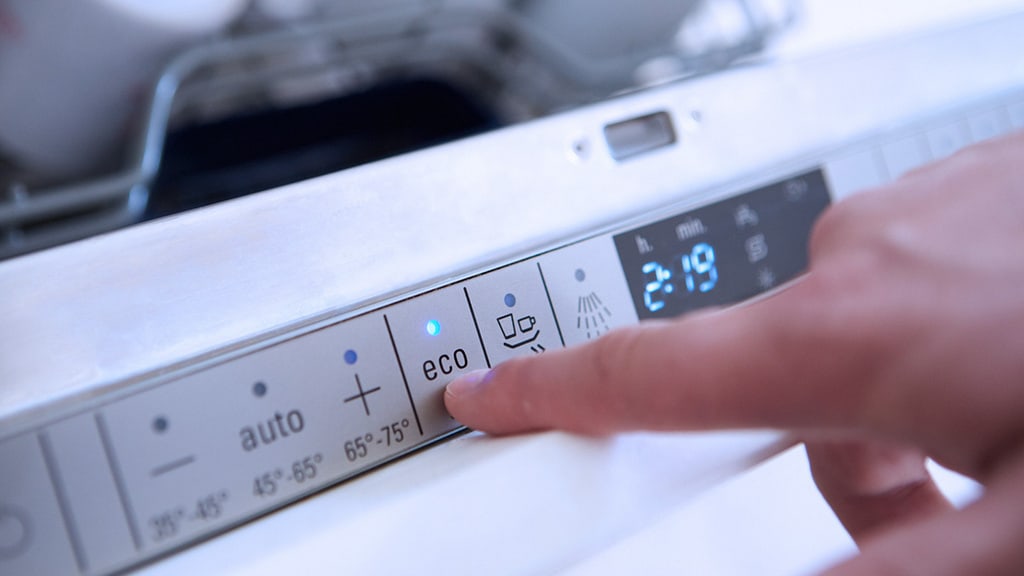
Choosing the most efficient dishwasher cycle can have a big impact on your energy and water usage. In the long run, it can save you money on your monthly bills.
One of the most efficient dishwasher cycles is the “light wash” or “energy-saving” or “eco-mode” cycle. These cycles use less water and energy than the standard wash cycle. They are perfect for washing dishes that aren’t heavily soiled, such as glasses and small plates.
The “air-dry” or “air-dry plus” cycle is another efficient option. These cycles use a fan to dry the dishes instead of heat, which can help conserve energy. Some models also have a feature that allows you to turn off the heat-dry option and use the air-dry feature instead.
If you have an older dishwasher model, you may want to consider using the “rinse only” cycle. This cycle uses less water and energy than a full wash cycle and is great for washing dishes that will be used again soon. However, keep in mind that the rinse-only cycle does not actually wash the dishes, so it’s not a good option for heavily soiled items.
Conclusion
How often you should run the dishwasher will depend on your household and the other things I’ve mentioned. By thinking about the size and capacity of your dishwasher, the types and numbers of dishes you wash, and how well it uses energy and water, you can figure out how often your dishwasher should be run.
Trust me, these small changes can make a big difference in your energy and water usage—and your wallet!

